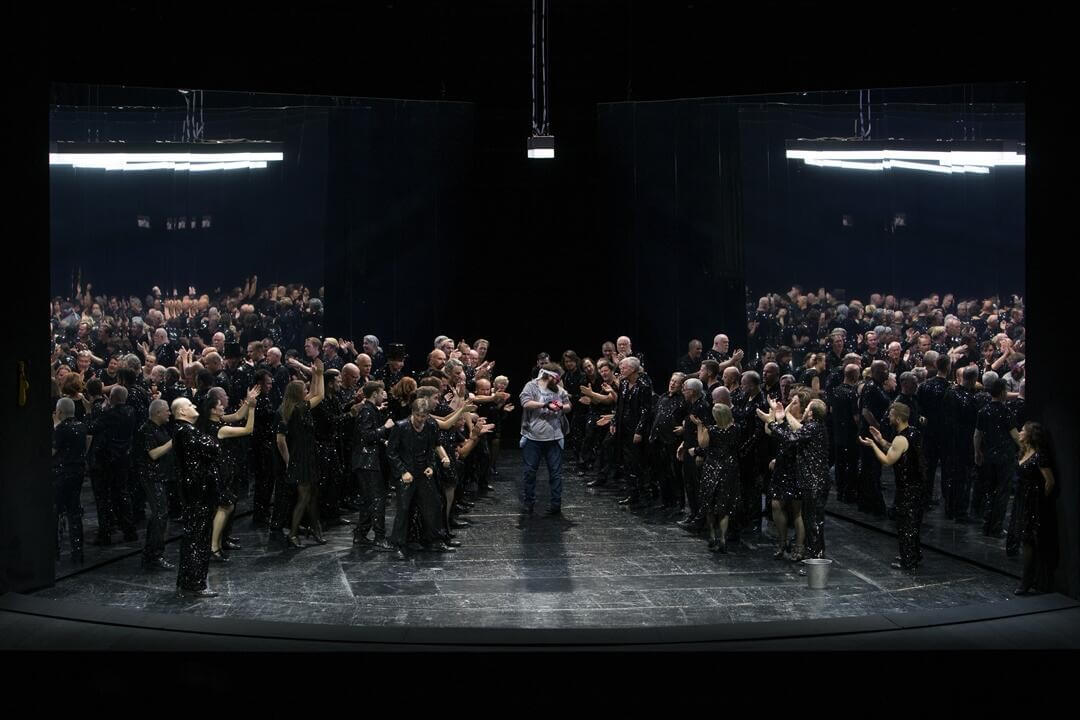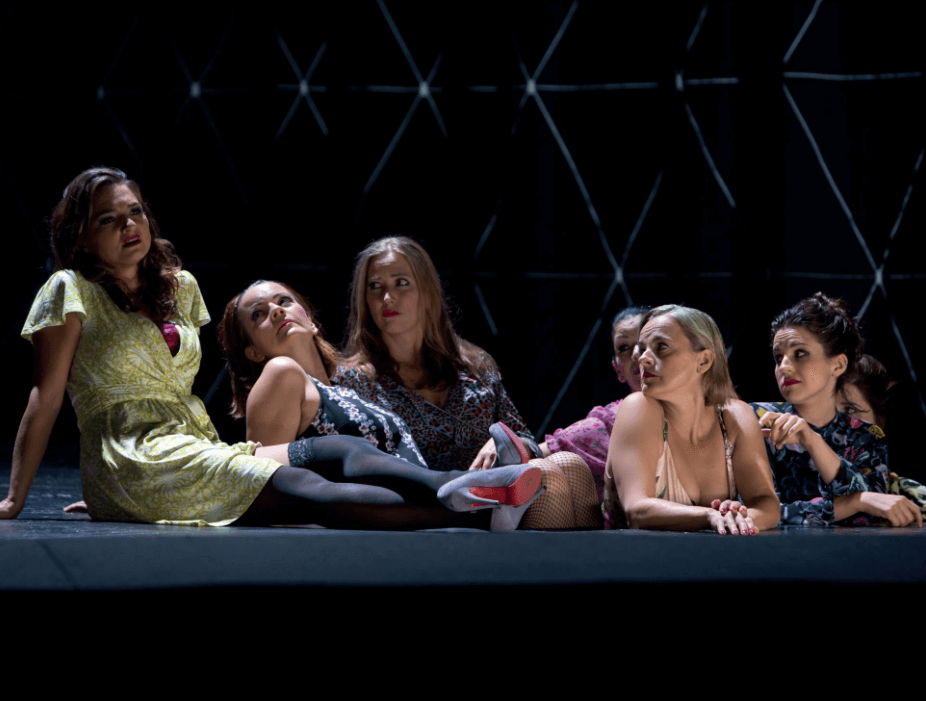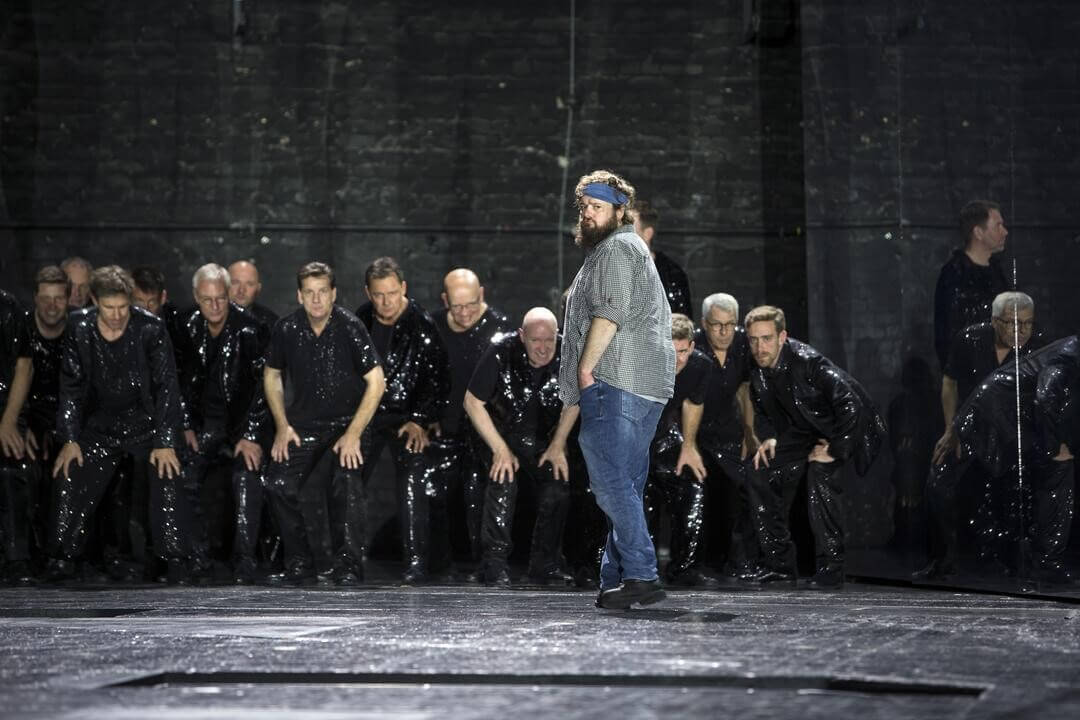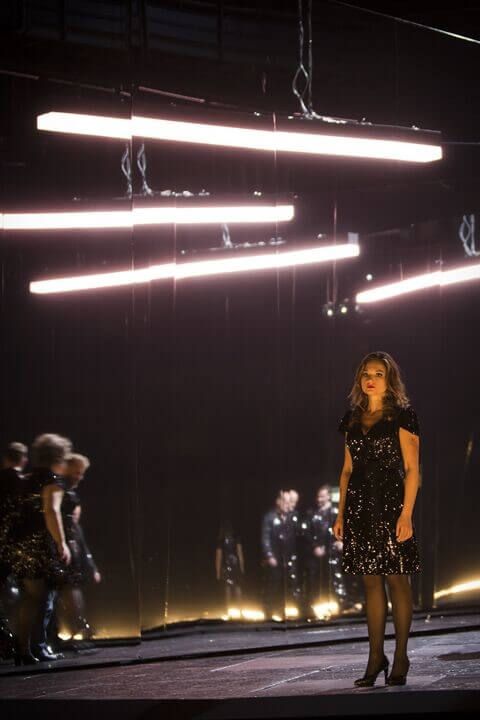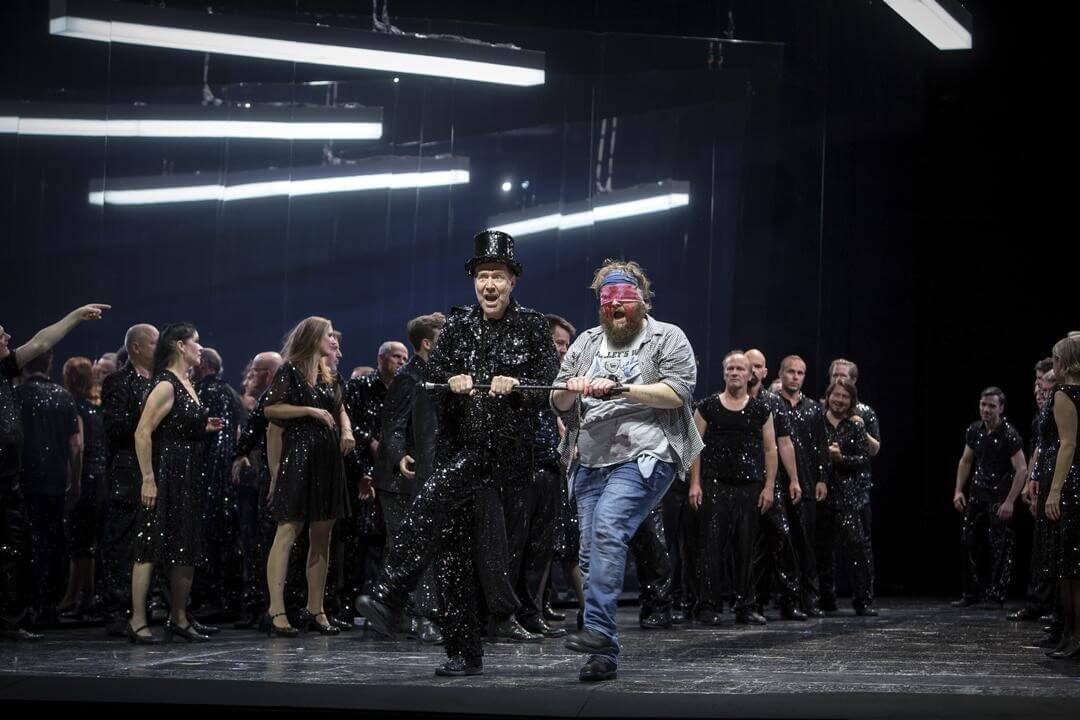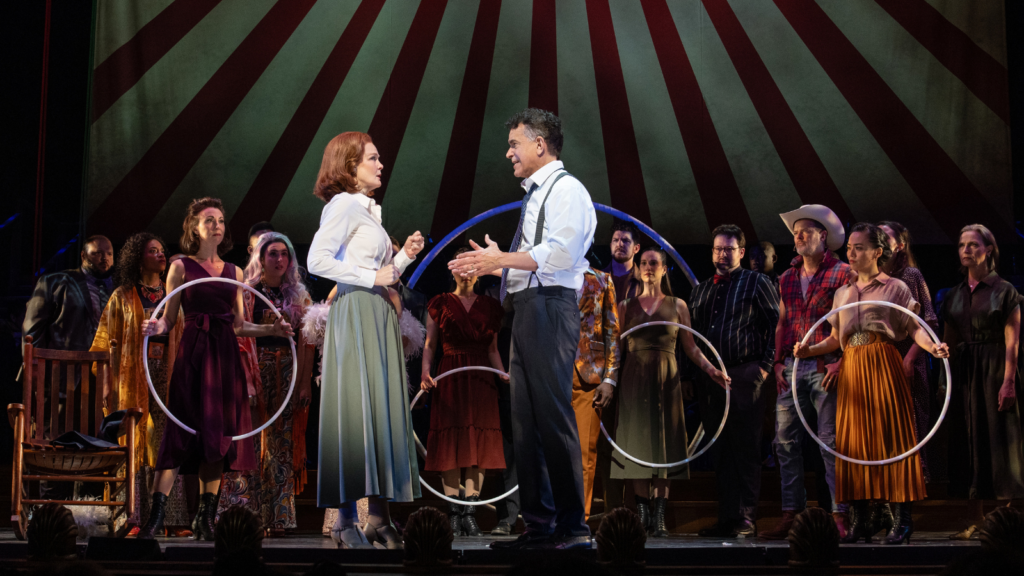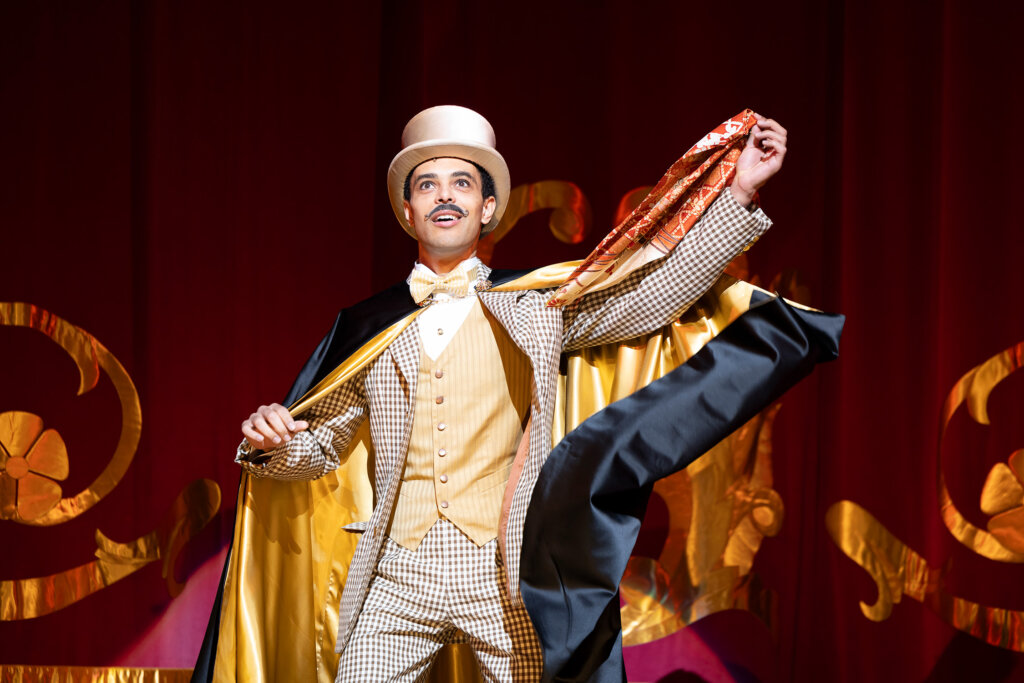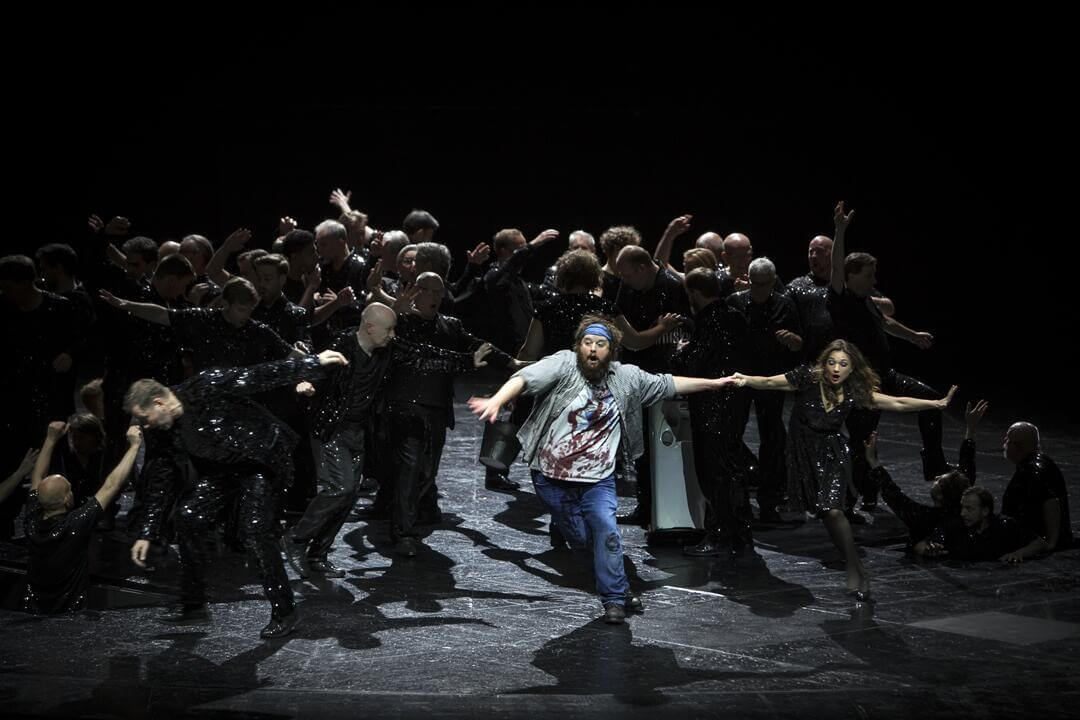
Taking his cue from the many biblical references in Weill and Brecht’s libretto, director Barrie Kosky premiered a controversial new production of Aufstieg und Fall der Stadt Mahagonny at the Komische Oper Berlin on 2 October. It appears only weeks after the premiere of Kosky’s lauded production of Die Dreigroschenoper at the Berliner Ensemble. This new reading of Weill’s epic opera challenges the audience to make sense out of the dissonance between words and music, between the seen and the unseen, and between the spoken/sung and the unspoken. Kurt Weill Foundation President Kim H. Kowalke reflects, “Kosky obviously trusts the power of Weill’s music to end the opera with just one dead body on stage, as an amplified off-stage chorus sings ‘Nothing you can do will help a dead man,’ ending in a shattering Mahlerian climax. That is daring, if not paradigm changing.” A video recording of the opening night performance is available free of charge through 29 October here.
More Weill at the Komische Oper: Barrie Kosky will team with Katharine Mehrling for a performance of their all-Weill recital titled Lonely House: Songs and Chansons by Kurt Weill on 24 October.
REVIEWS
“In the symbolic ambiguity of his staging, which asks more questions than it gives answers, the Weill admirer Kosky ultimately adheres more to the music than to the striking clarity of Brecht’s text… It is only the music in this dystopian parable about the destructive power of anarchically unleashed capitalism that could repeatedly flash the utopian counter-image to the crude expediency of relationships.”
“Allan Clayton forms [Jim] into a large character role with his youthfully incendiary tenor and an unrivaled playfulness… Soprano Nadja Mchantaf performed wonderfully in Weill’s song style. What her innocent princess timbre lacks in the wickedness typical of the role, she makes up for with a ravishing fragility.”
一 Julia Spinola, Süddeutsche Zeitung (4 October 2021)
“[Kosky] recently succeeded in a brilliant, radically clarified reinterpretation of The Threepenny Opera at the Berliner Ensemble. For Mahagonny too, he now renounces all folklore and decoration, relying only on a sparse stage, reduced in size by mirrored walls in Klaus Grünberg’s stage design.”
一 Irene Bazinger, Berliner Zeitung (3 October 2021)
“Kosky sees the theater here as a moral institution that acts through deterrence. It’s not at all subtle, just as the director’s decision to stage the play strictly as a parable bears almost dogmatic features. Between black walls or mirrors (narcissists are all here) the horde of Mahagonny appears in uniform black. Such monotonous color, however, lets the colorfulness of Weill’s ingenious music emerge…. an effortlessness and sophistication reminiscent of Mozart.”
一 Clemens Haustein, Frankfurter Allgemeine Zeitung (5 October 2021)
“Weill’s work is usually brought to the stage in shrill and crackling leather, as a distorted image of the American way of life… Barrie Kosky takes a different approach: he leaves out everything, the grotesque as well as the orgy of decor, and focuses entirely on the biblical connotations he finds in Brecht.”
一 Frederik Hanssen, Der Tagesspiegel (3 October 2021)
“Brecht’s satire of capitalism (if you want to call it that), in a world where everything is allowed as long as you have money, can only be endured in its boldness because it is ennobled by Weill’s score. The music not only indulges in alienated quotations from the secular and sacred Baroque, from Puccini and the Viennese operetta. It also balances this opulence through an overall structure that bundles everything that was musically new around 1930: Charleston and Shimmy, Fox Trott and songs, of which not only the catchy tune of the ‘Alabama Song’ still feels fresh after ninety years.”
— Tilman Krause, Welt (3 October 2021)
“Dramaturgically, the basic idea of ‘Netzestadt,’ as the authors define the name Mahagonny, is convincing in today’s networked world. The stage set’s bare mirror walls represent the self-reflection of the ego in today’s social networks.”
“The end is bizarre. Kosky accompanies the arrival of God in Mahagonny with the appearance of a ‘god machine,’ a remote-controlled monkey. Over him is a roof bearing the Hebrew lettering ‘Emet’ — truth — the first letter of which then falls off, the remaining letters spelling ‘Met’ — death…. The ensemble and choir sing the oratorical message off-stage, amplified by microphones. Instead of the demonstration with written posters indicated by Brecht, the dead (anti) hero Jim lies alone between the closing mirror walls and a lowering light box.”
一 Peter Pachl, NMZ (3 October 2021)
“The vocal soloists are well-cast, with Nadine Weissmann as the charismatic Leokadja Begbick, Ivan Tursic as Fatty, and Jens Larsen as Trinity Moses. The choir is scenically integrated and impressive…. The staging attends to the colorful music montage. At the end the music is the only thing that remains.”
一 Volker Blech, Berliner Morgenpost (4 October 2021)
“The strength of this staging is the careful construction of longer sequences of scenes. Kosky is not interested in the clamor of a number revue, even if a superficial glance at text and music might give that impression. Like a conductor who thinks through a long Mahler symphony and has to keep an eye on the entire development instead of stringing together ‘beautiful passages,’ he thinks of this opera from its end and ensures the development of the protagonists.”
—Berthold Seliger, Neues Deutschland (8 October 2021)
“In terms of content, Mahagonny is even stronger than The Threepenny Opera. It is about founding a utopian city in which happiness is capitalistically there for everyone and which therefore promptly leads to its downfall. That is a slap in the face of all that we are loyal to today.”
一 Kai Luehrs-Kaiser, rbbKultur (4 October 2021)
OTHER MEDIA
Production Photos by Iko Freese
- Allan Clayton (Jim Mahoney), Jens Larsen (Dreieinigkeitsmoses), and Ensemble
- Nadja Mchantaf (Jenny Hill) and Ensemble
- Allan Clayton (Jim Mahoney) and the Choir of the Komische Oper Berlin
- Nadja Mchantaf (Jenny Hill) and Ensemble
- Tom Erik Lie (Bill), Allan Clayon (Jim Mahoney), and the Choir of the Komische Oper Berlin
